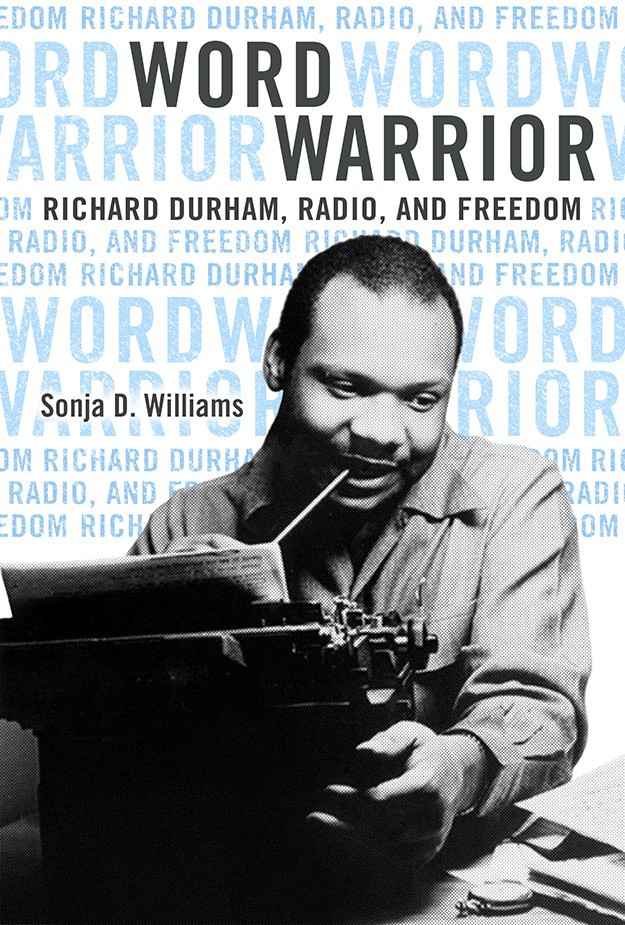Richard Durham’s chosen name embodies the force with which he advanced his life’s goal: greater freedom for all people through the narration of stories. Born Isadore Durham, the writer chose the name Richard in light of his admiration for Richard the Lionheart, the crusading medieval king. Details like this one fill Word Warrior, Sonja D. Williams’s lively biography of Durham, a pioneering black journalist and radio dramatist.
Williams, a professor at Howard University and a recipient of three Peabody awards for her work as a radio producer, began this biography after hearing episodes of Durham’s radio series Destination Freedom. “His accomplishments,” she writes, “reinforced my own belief that media, in all its incarnations, should serve a higher purpose than just mindless diversion.”
The story begins a few generations back, taking the reader through the history of race relations leading up to Durham’s childhood in a Chicago facing an influx of migrants from the South. The beginnings of trouble from white realtors back then foreshadow the discriminatory practices that Durham would combat in his work.
Descriptions of Durham as a child are used to heavily presage his future character. The colorful anecdotes provided by Durham’s sister Clotilde, for instance, are framed as an adventurous boy learning to observe and dissect his surroundings. Durham’s brief boxing career in high school is presented as being central to his activist drive and unwillingness to step aside when challenged.
Williams makes Durham’s passion for universal equality and freedom clear. His work tackled issues ranging from women’s rights to health care, and he pursued these goals even while working for labor unions and the Nation of Islam, often giving advice and support to female colleagues. Durham’s friend Abena Joan Brown declared that in his lesser known television program Bird of the Iron Feather, “he wrote not only for himself but he wrote for us so that we could better understand what this journey is all about.”
The name of Durham’s signature radio program Destination Freedom, in which Durham dramatized the lives of historic African Americans, might seem suggestive of the idea that activism is a journey. But true to his chosen name, Durham was more of a crusader than a traveler. Williams portrays Durham as an activist who used words as weapons in an ongoing fight. Hindsight sometimes makes Durham’s career path feel more like destiny than ambition, but this is made up for by William’s ability to convey Durham’s forceful personality.
In Williams’s portrait, Durham’s only downfall is that he would always “whip out his boxing gloves to hammer home his point—sometimes going overboard to do so.” On multiple occasions, Durham’s career is jeopardized by his refusal to compromise on points of artistic or racial justice. When he refused to cut “anything [he] felt was healthy for inspiring Negroes to a more militant struggle,” Durham faced rumors of being a “Red” communist, but held firm. Similarly, while writing the Nation of Islam’s journal Muhammad Speaks, Durham insisted on maintaining the publication’s journalistic integrity despite intense pressure from the religious hierarchy. These challenges didn’t stop him from creating seminal works of radio and journalism, including his lesser known authorship of The Greatest, Muhammad Ali’s 1975 autobiography.
Durham’s career is itself an accomplishment of racial and ideological progress. Although his groundbreaking projects faced many obstacles, his perseverance opened opportunities for other black artists of the time and created a path for others to follow.
Sonja D. Williams. Word Warrior: Richard Durham, Radio, and Freedom. University of Illinois Press. 181 pages. $26.



